 Managing the Gavi Transition
Managing the Gavi Transition
Gavi provides a variety of support to lower income countries with the goal of accelerating equitable uptake of vaccines, increasing effectiveness and efficiency of immunisation service delivery as an integrated part of strengthened health systems, and improving the sustainability of national immunisation programmes. As countries cross the World Bank’s low-income country threshold, Gavi begins to wind down its financial commitments, while countries increase their co-financing until they become fully self-financing. During the transition process, Gavi intensifies its support to help countries achieve financial and programmatic sustainability. More information about the Gavi transition process can be found on Gavi’s website.
Gavi’s vision for a successful transition is one in which countries have expanded their national immunisation programmes with vaccines of public health importance and sustain these vaccines post-transition with high and equitable coverage of target populations, while having robust systems and decision-making processes in place to support the introduction of future vaccines. Explore our resources that highlight good strategies and promising practices for tackling challenges for transitioning countries.
The Linked network is an evolution of the Learning Network for Countries in Transition (LNCT), a collaborative learning network that operated between 2017-2021, supporting over 20 countries transitioning from Gavi support to full domestic financing of their national immunisation programmes. Our website still contains access to a large selection of useful tools, materials, and resources produced from LNCT that are available for countries to draw upon to help them achieve a sustainable and equitable immunisation programme with high coverage rates.
Click the buttons below to access network and partner resources related to the transition process, including recordings of webinars from the Network’s “Ask Gavi” series featuring Gavi representatives and resources that highlight good strategies and promising practices to address common challenges related to the transition.
Other Focus Areas
Many middle-income countries are missing critical, life-saving vaccines, which presents a threat to inter-country equity. Of the 19 countries that have transitioned from Gavi support, 13 have not yet introduced at least one of PCV, rotavirus, or HPV vaccines. And despite higher immunisation investments on average, a number of middle-income countries that have never been eligible for Gavi support are similarly lagging behind in introducing these vaccines relative to Gavi countries. Explore our resources that highlight good strategies and promising practices in new vaccine introduction.
Whilst most countries maintain programme performance following the transition from Gavi support, some have gaps in programmatic capacities which can create a risk of backsliding in vaccine coverage. This risk has increasingly become a reality in the context of the COVID-19 pandemic, presenting a significant threat to intra-country equity, as backsliding disproportionately impacts the most vulnerable populations. Explore our resources that highlight good strategies and promising practices to prevent and mitigate backsliding.


